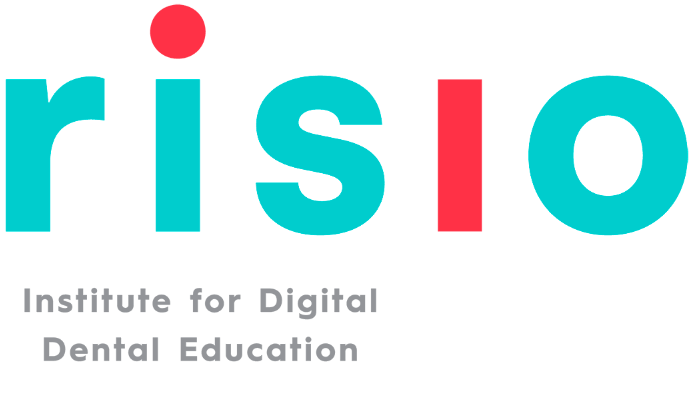Summary:
- The Canadian dental industry is facing staffing shortages, creating a high demand for dental assistants.
- This demand is leading to enhanced job security and the opportunity for long-term contracts.
- Salaries and benefits for dental assistants may soon increase as clinics struggle to fill positions.
- The role of dental assistants is also expanding, requiring them to take on additional duties including more hands-on patient care and administrative tasks.
- These changes offer numerous opportunities for professional growth, but dental assistants need high-quality training to take advantage of them. Risio’s online dental assisting program can provide essential training and opportunities for work integrated learning that help graduates succeed in the current market.
The Canadian dental industry is not immune to the wave of staffing shortages that has swept across various sectors in recent years. Dental clinics, much like healthcare facilities, are grappling with increasing demands and fewer professionals to fill in the gaps.
Dental assistants, in particular, have been significantly affected by this scenario—but this can actually work to your advantage. In this article, we’ll show you what the current staffing shortage means for Canadian dental assistants so that you know how to position yourself for success when taking your next steps in this field.

Higher Demand for Dental Assistants in Canada
Job prospects for dental assistants remain moderate to good in nearly every part of the country, according to the Job Bank run by the Government of Canada. There are also 14,200 new positions expected to open up in dental assisting by 2031, with an estimated 17,000 new job seekers available to fill them—suggesting that up to 83.5% of job seekers could have an open position waiting for them.
Of course, there’s always some discrepancy between where the jobs and job seekers are located—which means that many Canadian practices are actually short on qualified applicants for dental assisting jobs. Here’s what that means for you:
- Dental offices are more desperate than ever to find qualified dental assistants to support their operations.
- Because the shortage is nationwide, there are job openings in both urban and rural settings.
- Dental assistants are now expected to take on roles that might have been considered peripheral before, such as administrative tasks.
- With fewer staff, dental assistants are often tasked with more hands-on patient care, making their role more critical than ever.
The Takeaway
While the market for dental assistants is expected to stay strong for years, the expectation for dental assistants to perform a wider range of duties makes it all the more important to find comprehensive training. Choosing a strong dental assisting program is imperative for those who want to seize this moment.

Enhanced Job Security & Stability
Dental assistants taking on a wider range of duties and being more involved in patient care also makes them the glue that holds many practices together. As a result, dental assistants who succeed in their roles are quickly becoming invaluable. Here’s what to be aware of in the current climate:
- Dental offices are working hard to retain their existing dental assistants, given how hard it is to find replacements.
- More employers are offering long-term contracts to secure the services of dental assistants for extended periods.
The Takeaway
Good dental assistants are becoming harder than ever to replace—which can provide you with excellent job security if you’ve invested in developing the right skills for the job.
See Also: 10 Skills a Successful Dental Assistant Possesses
Potential for Higher Salaries & Benefits
Higher demand typically drives up salaries. The hourly range for dental assistants in Canada is as follows:
- Low End or Entry-Level: $19.00
- Median: $24.73
- High-End: $33.00
With the current staffing shortage, pressure has been mounting to increase salaries for dental assistants across the country. Some employers are also offering attractive benefits such as healthcare coverage, retirement plans, and even sign-on bonuses to lure in qualified dental assistants.
The Takeaway
With some practices offering substantially better compensation for dental assistants, it’s important for job seekers to be as competitive as possible in order to secure the top spots. Consider Risio’s Jump Start Program, which aims to provide students with a leg up when preparing to enter the workforce.

More Opportunities for Professional Growth
With the current shortage, promotions and advancements are happening at a quicker pace than before. Some dental assistants are even taking on managerial roles within dental offices. Given the more complex roles that dental assistants are required to fill, there is also an increased emphasis on continuing education and certifications, which opens up additional avenues for career growth.
The accelerated pace of professional growth is a silver lining in the otherwise challenging situation that the shortage has imposed on the healthcare industry. Dental assistants are quickly finding that their career paths are not as linear or limited as they may have once thought.
The Takeaway
Dental assistants have an opportunity to rapidly expand their skill sets, due to the expanding scope of their roles and numerous courses that exist to provide ongoing professional development.
Long-term Prospects for Dental Assistants in Canada
The staffing shortages in Canada’s dental industry have undeniably caused strains and challenges, but they have also led to unprecedented opportunities for dental assistants. The surge in demand has led to increased job security, potential for higher earnings, and numerous opportunities for professional growth.
Moreover, these changes seem to be more than mere short-term fluctuations. Since practices require dental assistants in order to keep providing essential services for patients, these roles will likely remain critical for the foreseeable future.
The right training can set you apart when you take your next steps as a dental assistant—and we’re here to help! Apply to Risio today and take advantage of our uniquely structured program featuring work integrated learning opportunities with a dedicated job bank to help students gain hands-on experience and valuable professional connections.
Frequently Asked Questions about Jobs for Canadian Dental Assistants
What province has the highest paid dental assistants?
The highest recorded salaries for dental assistants in Canada are currently in Alberta and Nova Scotia (at $36.00 per hour in both regions). Alberta also has the highest median salary for Canadian dental assistants, at $30.00 per hour.
Is there a difference between a dental assistant and a dental hygienist?
Dental assistants are generally responsible for tasks like sterilizing instruments, taking X-rays, and assisting dentists during procedures. Dental hygienists, on the other hand, require an associate degree in dental hygiene and must be licensed to practice.
Working as a dental assistant can be an excellent way to gain clinical experience and useful knowledge that can help facilitate a career transition into becoming a dental hygienist in the future.
How long does it take to become a dental assistant?
Risio’s accredited Dental Assistant Program is designed to be completed in just 21 months, after which successful graduates will be qualified to work as dental assistants across the country.
Why train with Risio?
Our dental assistant diploma program is accredited in Alberta by the Commission on Dental Accreditation of Canada, and consists mainly of online modules that allow you to enjoy a flexible schedule and study from anywhere in Canada.
A final in-office practicum lasting 3 weeks (or 120 hours) provides essential hands-on instruction, and work integrated learning is built into the program so that you have an opportunity to volunteer or earn money in a practice while you learn.
The in-person clinical component of our program can be taken at our Alberta campus in Calgary or our Ontario campus in Toronto. This also provides you with valuable networking opportunities so that you can plan the next part of your career before you’ve even graduated!

